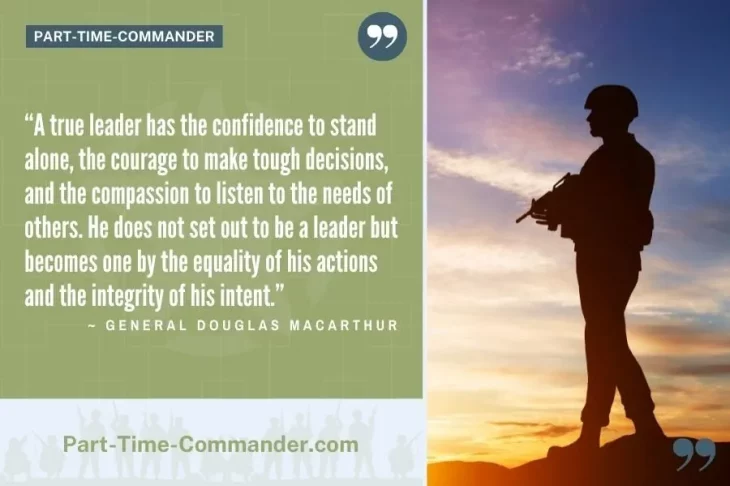Feedback is so Critical Even Your Boss Needs It Too
“Examine what is said and not who speaks.” — African Proverb
Feedback fuels successful organizations and teams as it is the lubricant that keeps processes at peak performance. Conversations, either formal or informal, regarding team performance can happen at any time but its criticality is vital with the honest and free flow of information, either perceived or actual, to a team or organization’s success. True leaders at all levels must position themselves such that there is an open flow of communication to them with previous events, current situation, or what is to come. We tend to focus on the feedback channel below or lateral to us ensuring the things that we can impact have the necessary information to complete the mission.
Communication only works if both parties exchange information openly. Most military members conduct feedback where the conversation is only done for the recipient, where the discussion focuses on the those items where the individual reviews their performance from the good, the bad, and the ugly. If the supervisor is good, they will also provide positive feedback and those things the supervised should build upon or further keep doing. It is easy to highlight where things need to improve, but if someone understands how events transpired and have the empathy to power through, they will be able to pass along any positive information that is necessary to keep the supervised to remain open to critiques. It is easy to throw a turd on the table … but that is not feedback or critique; it is just focusing on the negative.
The best method for feedback comes in what this author calls, “the compliment sandwich.” The compliment sandwich is where one begins feedback with something good about the person or events, then follow with the negatives, and then finish with where things will be going from that moment. Here is the key though; the bigger the negatives in the middle, the bigger the compliments on the front portion must be. So for example, the bigger the pile of shit in the middle, the larger the pieces of bread needed to encapsulate the turd to ensure the person can receive the feedback. For example from this author’s aviation days:
Instructor: How do you think today went today?
Student: Could have been better.
Instructor: Well things could always be better, but your mission planning skills were very good. The plan you developed was very well put together. The flight was Ok, but there is some work that needs to be done. [INSERT 10 minutes of feedback on what was wrong intermingled with some positive highlights].
Student: Sounds good.
Instructor: Overall though you did well, but if you work on [insert two or three items here] then you will be outstanding.
The key for honest and fair feedback is to ensure there is honest respect and trust between the individuals; similar to that of any relationship you have ever had in that we will only listen to communications from others whom we trust or respect. People can only accept so much negativity; therefore, it is vital that one be professional and remember that the person sitting across from them is a person. If one remembers that the goal for feedback is to improve the other person, then remind yourself how you would want to be told the critique. No one likes to have feedback be nothing but negative, nor does anyone like to be at the receiving end of the entire conversation; so it is vital to keep some positive feedback in the discussion.
Feedback is truly a discussion between two or more parties. That is discussion is no different than a discussion a couple would have to share thoughts on how to improve their relationship. The ground rules then must also have a feedback loop to ensure those that lead or started the conversation also have the ability to hear commentary on their actions.
How the previous example should resolve itself is as follows:
Instructor: Overall though you did well, but if you work on [insert two or three items here] then you will be outstanding. Is there anything you have for me as the instructor good or bad? Anything that I could have been better or you liked?
Student: [Insert feedback.] Thank you for the opportunity.
Most people are surprised in these circumstances when asked for honest critics. Every time this author would instruct, they would finish with a very similar sentence to the student; most would say nothing or have no comments. There were a few though would have the courage to discuss what things they did not like. It is always rare to receive honest feedback from students besides the typical response of people who are either frustrated or simply do not like the events.
There is one person though that we tend to neglect to provide feedback: our boss.
When was the last time you had the ability to provide true and honest feedback to your boss? We tend to provide the boss feedback that is a “mile wide and an inch thick” but rarely has there been a time when there is honest feedback where you have told the boss very uncomfortable feedback. We tend to worry that providing that feedback will upset the boss and our performance reports will reflect the boss’s insecurity. There are times to pull punches and there are times to move forward; it depends on the severity of the feedback impact.
This author has frequent feedback sessions with their boss who is a U.S. Air Force Colonel and are completed at various times. In the current position, as a deputy, the sole purpose of the job is to check the boss and ensure they are on the correct path. One must know the rules sometimes better than the boss (which for this author seems to never be the case) but be willing to become the lightning rod for discussion especially controversial topics. The discussions had are frank yet very respectful. There are times when the deputy provides data-driven impartiality to discussions to challenge what the boss believes or has calculated to ensure they are sure of their decision.
There are even times when a “good job” or “that was a very good decision” are phrases we as the followed should pass along to our bosses. Your boss, no different than you and if they are honest with themselves, needs to hear simple comments of affirmation when they make decisions that required additional risk. The supervisor can decide whether they want to receive those words, but this approach will help build trust between the team members.
Overall, if you want to get better at anything…. you must be able to give and receive proper feedback. It takes practice and one must get feedback to improve their feedback practices.

Pred
A 19 year Active Duty Air Force Officer who has NOT claimed capture of Bakmut, Ukraine.


